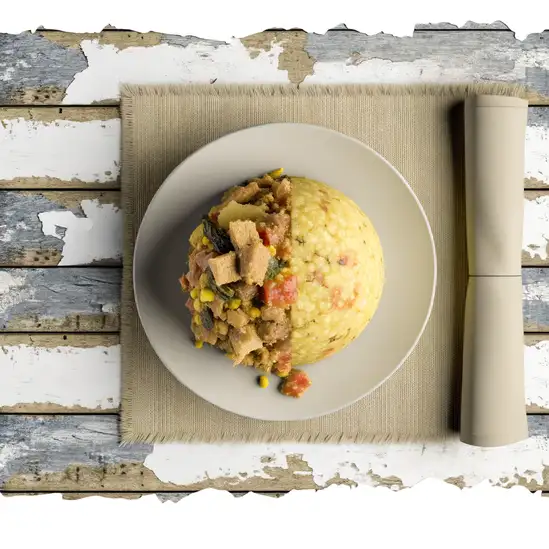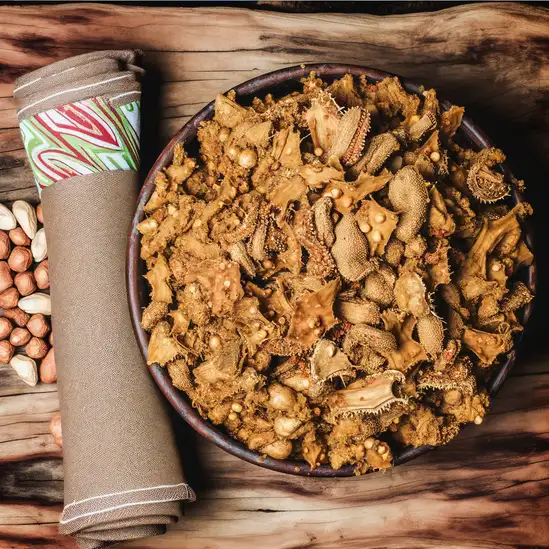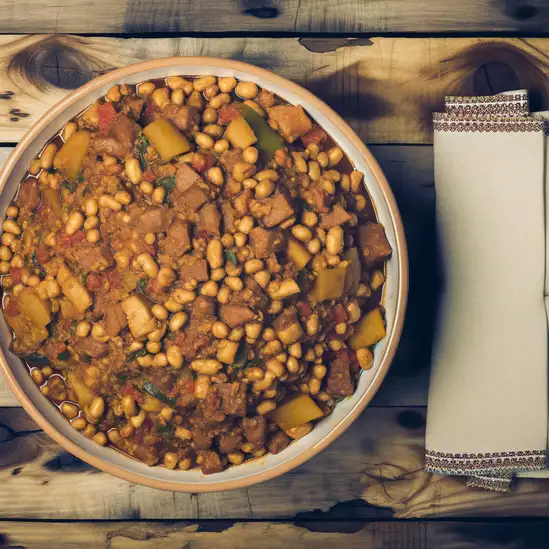



Lusaka feels like the heartbeat of Zambia—vibrant,warm,and full of life. When you step into the city,you’re immediately wrapped in a lively energy that’s both bustling and welcoming. The streets hum with the chatter of markets,the rhythmic pulse of local music,and the scent of grilled maize and spicy street food wafting through the air. It’s a place where tradition and modernity dance together effortlessly,from colorful crafts stalls to sleek cafes serving rich Zambian coffee. Walking through Lusaka,you’ll notice the friendly smiles and easy conversations that make the city feel like a community. The city’s character shines in its diverse neighborhoods,where you can catch a glimpse of everyday life—kids playing soccer on dusty fields,vendors calling out their wares,and artists showcasing vibrant paintings inspired by Zambia’s landscapes and wildlife. The warmth of the people here is as palpable as the African sun overhead. What’s truly special about Lusaka is how it invites you to slow down and savor the moment. Whether you’re sipping on a cold Mosi beer at a local bar or exploring the lush greenery of nearby parks,there’s a genuine sense of connection to the land and its stories. Lusaka isn’t just a stopover; it’s a place that stays with you,a city that feels like a conversation with an old friend—full of surprises,warmth,and a spirit that lingers long after you leave.
The information on this page is currently being reviewed by Tripkliq and should be used as a guide only
Eng word: Hello
Eng pronunciation: Moh-nee
Local language: Moni
Eng word: Goodbye
Eng pronunciation: Tsa-lah-nee bwee-noh
Local language: Tsalani bwino
Eng word: Thank you
Eng pronunciation: Zee-koh-moh
Local language: Zikomo
Eng word: How much
Eng pronunciation: Ndee ndah-lah-mah zeen-gah-tee?
Local language: Ndi ndalama zingati?
Eng word: Toilet
Eng pronunciation: Cheem-bood-zee
Local language: Chimbudzi
Eng word: Help me
Eng pronunciation: Ndee-tahn-dee-zeh-nee
Local language: Ndithandizeni
Eng word: Yes
Eng pronunciation: Een-deh
Local language: Inde
Eng word: No
Eng pronunciation: Ah-yee
Local language: Ayi
Eng word: Excuse me
Eng pronunciation: Peh-pah-nee
Local language: Pepani
Lusaka was founded in 1905 as a British colonial settlement.
Lusaka became the capital of Zambia in 1964 when the country gained independence from British colonial rule.
Lusaka was the location of the signing of the Lusaka Agreement in 1999, which aimed to bring peace to the Democratic Republic of Congo.
In 1989, Lusaka was hit by the Manchishi Earthquake which caused considerable damage to the city.
The University of Zambia, the country's largest university, was established in Lusaka in 1966.
Lusaka is home to the Freedom Statue, a prominent landmark symbolizing Zambia's struggle for independence.
Kamwala Market, one of the biggest and busiest markets in Lusaka, has been operating since the 1960s.
The Lusaka National Museum showcases Zambia's rich cultural heritage and history, attracting visitors from around the world.
In 1990, the Popa Falls Declaration was signed in Lusaka, setting goals for the sustainable management of the Zambezi River basin.
In Lusaka, the most common Power Adaptor is Type C, Type D, Type G.







A staple food made from ground maize, similar to polenta, often served with various relishes such as vegetables, meat, or fish.

Also known as 'African polony', this dish is made from ground orchid tubers mixed with groundnuts and spices, then steamed into a firm cake.

A delicious dish made from vegetables, typically pumpkin leaves or cassava leaves, cooked in a peanut sauce.

A popular dried and cured meat snack, often made from beef or game, seasoned with spices and air-dried.

Small dried fish, often served with nshima or as a side dish, usually fried or cooked in a tomato sauce.

A traditional drink made from fermented maize and roots, often enjoyed as a refreshing beverage.

A hearty dish made from crushed corn (samp) cooked with beans, often flavored with spices and served as a side.
Imagine a place where the ocean’s salty breeze mingles with the scent of blooming fynbos,and every corner pulses with a vibrant mix of cultures and stories. That’s Cape Town for you—a city that feels alive in the best way. From the moment you step onto the bustling streets,you’re wrapped in a warm,welcoming energy. The iconic Table Mountain looms overhead,its flat top often dusted with clouds,inviting you to explore its trails or simply admire its majesty from a cozy café. The city hums with a rhythm that’s both laid-back and electric,where street musicians play soulful tunes and the chatter of locals spills out from colorful markets.
Walking through neighborhoods like Bo-Kaap,you’ll be greeted by a kaleidoscope of pastel houses and the irresistible aroma of spicy Cape Malay dishes wafting through the air. The flavors here are bold and comforting—think fragrant curries,fresh seafood caught just hours before,and sweet koeksisters that melt in your mouth. At the V&A Waterfront,the lively buzz of boats bobbing in the harbor mixes with the laughter of friends sharing a glass of local wine,while the distant call of seagulls reminds you of the city’s close embrace with the sea.
Cape Town’s charm lies in its contrasts:rugged landscapes meet urban sophistication,history blends with modern creativity,and every sunset paints the sky in hues you’ll want to bottle up and take home. It’s a place that invites you to slow down,breathe deeply,and soak in moments that feel both timeless and thrillingly new.
Famous for its historic Stone Town and pristine beaches on the Zanzibar Archipelago,this city is a paradise for island lovers and cultural enthusiasts.
ExploreIf you ever find yourself wandering through Victoria,the capital of Seychelles,you’ll immediately notice its laid-back charm mixed with a vibrant pulse that feels both intimate and alive. It’s not a sprawling metropolis but a cozy town where the ocean breeze carries the scent of salt and tropical flowers,and the chatter of Creole,English,and French blends into a warm,welcoming hum. Walking through the colorful streets,you’ll catch glimpses of bustling markets where fresh spices,exotic fruits,and fragrant vanilla pods fill the air,inviting you to taste the island’s rich flavors.
Victoria’s character is a beautiful blend of cultures,reflected in its colonial architecture,lively street art,and the friendly smiles of locals who are always ready to share a story or recommend their favorite spot. The city feels like a crossroads of history and nature,with the iconic clock tower standing proudly as a reminder of its past,while just a short stroll away,the lush Botanical Gardens offer a peaceful escape filled with giant tortoises and vibrant tropical plants.
What really makes Victoria special is how it balances the simplicity of island life with a genuine sense of community and culture. Whether you’re sipping a freshly brewed Seychellois tea at a café,listening to the distant rhythm of sega music,or watching fishermen haul in their catch at the harbor,there’s a comforting rhythm here that invites you to slow down,breathe deeply,and soak in the moment. It’s a place that stays with you long after you leave.
If you find yourself wandering through Port Louis,you’ll immediately notice its vibrant pulse—a lively mix of old-world charm and bustling modern life that feels both warm and inviting. The city hums with energy,from the colorful stalls of the Central Market where spices,fresh tropical fruits,and fragrant street food scents mingle in the air,to the chatter of locals bargaining and sharing stories. It’s a place where the past and present dance together,with colonial architecture standing shoulder to shoulder with sleek skyscrapers.
Walking along the waterfront,the salty breeze carries the distant calls of fishermen and the gentle clinking of boats bobbing in the harbor. The streets are alive with a blend of cultures—Creole,Indian,Chinese,and French influences swirl through the food,music,and festivals. You can’t help but be drawn into the rhythm of sega music playing softly from a nearby café or the rich aroma of dholl puri being freshly made on a street corner.
Port Louis isn’t just a city; it’s a sensory experience. The vibrant colors of the market,the warmth of the people,and the tantalizing tastes of local dishes like octopus curry or gateau piment make it unforgettable. It’s a place where every corner tells a story,and every moment feels like an invitation to explore deeper. Trust me,once you’ve soaked in its unique spirit,you’ll carry a piece of Port Louis with you long after you leave.
Dar es Salaam pulses with a vibrant energy that instantly wraps around you like a warm,familiar hug. It’s a city where the salty breeze from the Indian Ocean mingles with the rich aroma of street-side spices and freshly grilled seafood,creating an intoxicating sensory cocktail. Walking through its bustling markets,you’ll hear the lively chatter of vendors,the rhythmic beat of taarab music drifting from nearby cafes,and the occasional call of fishermen bringing in their catch. There’s a raw,unpolished charm here—far from the polished tourist spots—that makes every corner feel alive and authentic.
The city’s character is a beautiful blend of cultures,from the Swahili influences visible in the coral stone architecture to the colorful fabrics and crafts that spill out of shops and stalls. You can taste this fusion in the food too—imagine biting into a perfectly spiced mishkaki skewer or savoring a plate of ugali with fresh fish,all while watching the sun dip below the horizon,painting the sky in fiery oranges and pinks.
What makes Dar es Salaam truly special is its people—their warmth,resilience,and infectious smiles. Whether you’re sharing a laugh with a local artisan or joining a lively street dance,you’ll feel a genuine connection that stays with you long after you leave. It’s a city that invites you to slow down,soak in its rhythms,and discover stories woven into every street and wave.
Imagine stepping into Maputo and instantly feeling the pulse of a city that’s alive with rhythm and warmth. The air carries a mix of salty ocean breeze and the rich aroma of freshly grilled seafood from street vendors,while the streets hum with the chatter of locals and the distant beat of marrabenta music. It’s a place where colonial architecture with its pastel hues stands shoulder to shoulder with vibrant markets bursting with colorful fabrics,spices,and handcrafted treasures. Walking along the waterfront,you catch glimpses of fishermen hauling in their catch,and the scent of coconut and tropical fruits mingles with the salty air.
Maputo’s charm lies in its effortless blend of cultures—Portuguese influences mingle with African traditions,creating a unique,laid-back vibe that’s both cosmopolitan and deeply rooted in local life. The city feels like a warm embrace,where people greet you with genuine smiles and invite you to share in their stories over a cup of strong coffee or a cold bottle of 2M beer. At night,the city transforms as jazz and Afrobeat spill out from cozy bars,inviting you to dance or simply soak in the lively atmosphere.
What really stays with you is the city’s spirit—resilient,creative,and welcoming. Whether you’re wandering through the bustling Mercado Central,savoring fresh prawns at a beachside shack,or watching the sunset paint the sky over the Indian Ocean,Maputo leaves you with a sense of having discovered a place that’s both vibrant and heartfelt,a city that invites you to slow down and savor every moment.
Scammers install skimming devices on ATMs to steal card information from unsuspecting tourists withdrawing cash.
Tourists may be offered fake or non-existent accommodations online, only to lose their money when they arrive and find no such place exists.
Tourists may be approached by individuals offering to exchange money at better rates than official bureaus, but they often use counterfeit bills or shortchange the tourist.
Scammers approach tourists claiming to represent a charity or cause, pressuring them to donate money which is pocketed by the scammer.
Scammers impersonate police officers and accuse tourists of minor infractions, demanding on-the-spot fines to avoid further trouble.
Scammers pose as tour guides and offer to show tourists around, only to demand exorbitant fees or lead them to overpriced shops where they get a commission.
Tourists may be charged significantly higher prices for souvenirs or handicrafts, especially in areas frequented by foreigners.
In crowded areas like markets or bus stations, pickpockets target tourists by distracting them or taking advantage of their unfamiliarity with the surroundings.
Some street vendors may sell counterfeit or low-quality goods at inflated prices, targeting tourists unfamiliar with local prices.
Some taxi drivers may overcharge tourists by not using meters or taking unnecessarily long routes to inflate the fare.
The use, possession, and trafficking of illegal drugs are strictly prohibited in Zambia, including Lusaka. Penalties for drug-related offenses are severe and can include long prison sentences and heavy fines. Tourists should avoid any involvement with illegal drugs to stay within the law and ensure their safety.
In Lusaka, Zambia, smoking is generally allowed in designated areas. However, smoking is prohibited in public places such as restaurants, bars, and public transportation. Tourists should look for designated smoking areas and be mindful of local regulations to avoid fines or penalties.
Vaping is not as widely regulated as smoking in Lusaka, but it is advisable to follow similar guidelines. Vaping in public places may not be explicitly banned, but it is courteous to use designated smoking areas to avoid any potential issues.
What are other people saying about Lusaka?
Recent Social posts about Lusaka
There is nothing to show you for now.